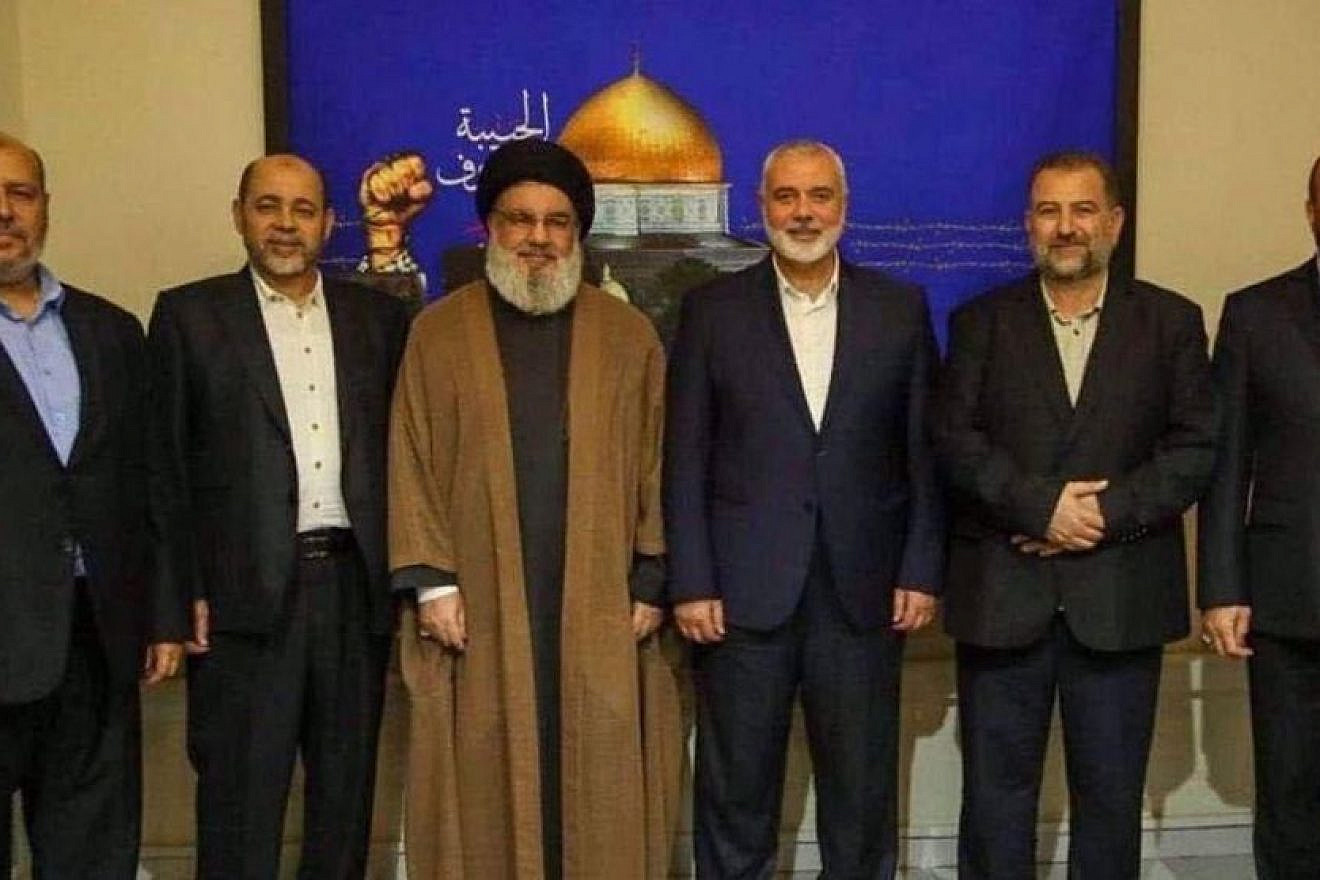Hamas feels betrayed by Hezbollah and Iran, and it doesn’t appear likely that either will meaningfully help at this stage in the war, a Palestinian Authority security official said on Tuesday.
A Hamas source, quoted in a Financial Times report on Friday, said the terrorist group’s leadership had not expected the United States to deploy two aircraft carrier strike groups to the region.
The U.S. also carried out air strikes on sites in Syria associated with Iran’s Islamic Revolutionary Guard Corps. The strikes were in response to drone and rocket attacks on American forces stationed in eastern Syria.
The P.A. source stressed, neither Iran nor Hezbollah is in a hurry to “pay a direct price” for supporting Hamas, and the Gaza-based terrorist group understands it is being left to face Israel alone.
Mousa Abu Marzouk, a senior member of the Hamas politburo, has been expressing deep anger at Iran and Hezbollah. Appearing on Egyptian television, Abu Marzouk said bitterly, “We expected more from our allies. … Hopefully what is happening in Gaza will awaken the conscience of the [Arab states’] rulers.”
Razi Hamed, another top Hamas official, said a few days ago in a television interview that Hamas had expected more from its allies, but he did not name Iran or Hezbollah. “Our vision was to open all fronts at the same time,” Hamed said.
Ahmed Abdel Hadi, Hamas’s representative in Lebanon, also declared recently: “Iran betrayed the Palestinians and Hamas.” Abdel Hadi later denied saying those words. Several related comments of his, posted on X, were deleted.
Arab sources say that Saleh al-Arouri who is in charge of Hamas’s relationship with Iran and Hezbollah, is aware of the tension between the organizations but prefers to bury it. Al-Arouri, who is based in Lebanon, is also the commander of Hamas terrorist activities inside Judea and Samaria and has also been the biggest advocate of bringing Hamas into Iranian orbit.
“Al-Arouri is trying to calm things down relating to the Iranian axis,” the P.A. security source said.
In Lebanon, journalists regarded as Hezbollah mouthpieces are out of sync with Hamas to the extent that they deny that Israel has launched a ground invasion. As IDF tanks rolled into Gaza on Monday night, Lebanese journalist Hussein Mortada rushed to get a map of the area and go live on social media to explain, “This is not an Israeli ground invasion.” He claimed that the IDF tanks were damaged by Hamas.
An Arab source explained, “Mortada wants to avoid embarrassment to [Hezbollah chief] Hassan Nasrallah, who has said on several occasions that a ground campaign will lead to Hezbollah joining the conflict.
“If there is indeed now a ground operation by Israeli tanks, Nasrallah is in a terrible dilemma,” the source added.
Lebanese public opinion polls in recent days show that 60-68% of the population oppose Hezbollah joining the fighting between Israel and Hamas.
Hezbollah chief Hassan Nasrallah allowed the pro-Hezbollah daily Al Akhbar to publish one of the polls to explain in the future why the Iran-backed terrorist group has not intervened on a significant scale. More than 80% of respondents supported Hamas’s massacres inside Israel while fewer than 20% opposed them.
One poll found that 77% of the Lebanese said political condemnation of Israel was sufficient while 32% supported opening a new front. Even Hezbollah’s Shi’ite constituency prefers condemnation to war, the surveys found.


























